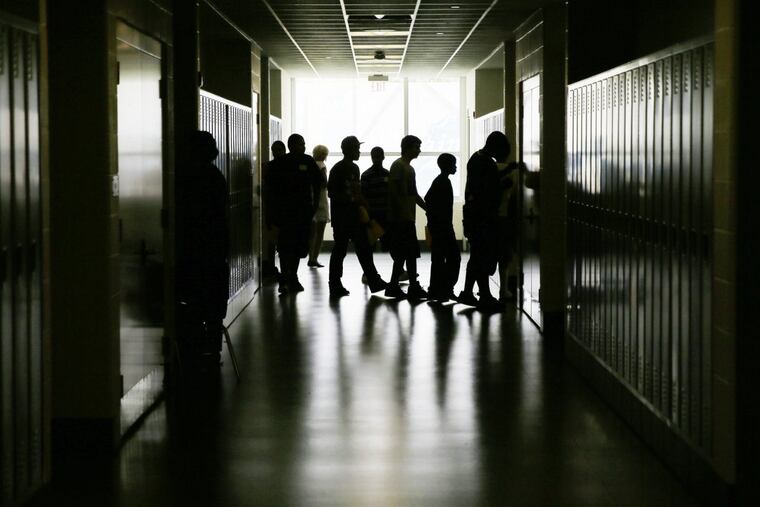Make tech part of core curriculum in Philly and Pa.
The tech-talent shortage represents a massive workforce development opportunity for Philadelphia. We should develop the talent we need right here.

There are more than a half million unfilled information technology jobs in the United States today — nearly 20,000 in Pennsylvania and thousands in the Philadelphia region.
The country has been trying to address the talent shortage through immigration policy and employers outsourcing work offshore. But the tech-talent shortage represents a massive workforce development opportunity for Philadelphia. We should develop the talent we need right here. And to start, tech education should be added to core curriculum in our Philadelphia and Pennsylvania public schools.
One hundred years ago, public schools were designed to prepare our kids for factory jobs in the industrial economy. It's 2017, long past time to start preparing our kids for tech work in the digital economy. Nearly 40 years ago my rural Pennsylvania high school purchased one personal computer for the entire school (a Radio Shack TRS-80). I took a class to learn the BASIC programming language and it changed my life. I've gone on to enjoy a highly rewarding 35-year career in information technology. I want every kid in Philly to have a shot at that same opportunity — if they want it.
According to code.org, only 1,891 Pennsylvania high school students took the advanced placement computer science exam in 2015. Why? It's not for lack of motivation. The issue is access. Only 169 schools in the state offered the exam. Even in Philly's career and technical education schools, there are career tracks for electrical, plumbing, carpentry, and auto repair for example but where is the information technology track? (There is a graphic arts class to be fair). The vast majority of our kids never see tech as a possible career path — and that's a shame. If we want more diversity in tech, Philadelphia schools would be a good place to start.
People typically think "tech" means coding. That's part of it, but tech is so much more. The field offers a wide variety of jobs to suit many aptitudes and interests, including user experience and interface design for the creative types; programming and database administration for budding engineers; local area network administration and cloud administration for the operations-minded; and all manner of customer support and help desk roles. The tech industry offers great wages, great benefits, and almost unlimited growth potential for those who choose it as a career.
And the tech industry is by far one of the most accepting of individuals without degrees. Ask any tech CEO or hiring manager and they are likely to tell you that they only care if you can do the job — not what college you graduated from. I was hired by Ross Perot's EDS without a degree and later in my career they helped me earn a master's in technology management. Tech companies also tend to be very supportive of internships — which are incredibly important if we are to begin building pathways to employment for our city youth.
IDC estimates that 50 percent of all jobs currently require some degree of technology skills and that will grow to 77 percent in the next decade. If we can get tech added to core curriculum in our public schools and partner with tech companies to provide internships, we will at a minimum better prepare our kids for success in the 21st century. But we can also begin to build pathways for our kids to great jobs while also making an impact on unemployment and poverty, being more inclusive of our neighborhoods, and diversifying the talent pipeline for future jobs.
There are already schools (i.e. String Theory or Freire School) or programs (i.e. Coded by Kids and TechGirlz) teaching tech and I applaud those efforts. But this needs to happen on a much broader scale — in all of our public schools. Many hurdles would need to be overcome and this is likely a decade-long journey, but one thing is clear to me: If we deny our kids this education, we are systematically denying them a chance at a better and brighter future.
Bob Moul is a serial tech CEO and entrepreneur with experience ranging from startups to Fortune 500 companies. rlmoul@gmail.com